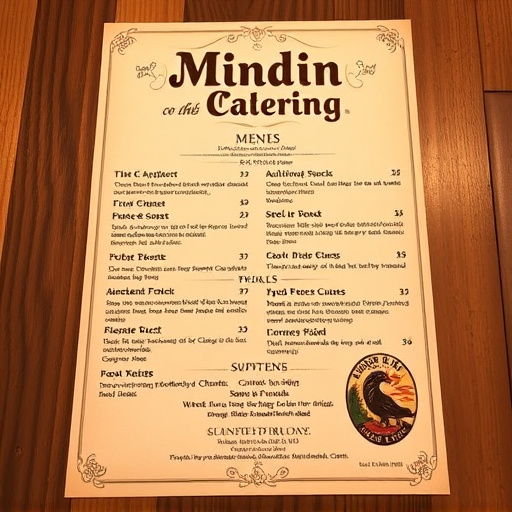Navigating Kosher Catering Options for Synagogue Celebrations
Planning synagogue events requires adhering to kosher dietary laws while offering satisfying culinar…….
Welcome to an comprehensive exploration of kosher catering options, a dynamic sector within the global food industry that caters to diverse dietary needs while adhering to stringent religious guidelines. In today’s multicultural and increasingly health-conscious society, understanding kosher catering is not just relevant for Jewish communities but also for businesses aiming to serve a wide range of clients with specific dietary requirements. This article will delve into the multifaceted world of kosher catering, tracing its historical roots, global reach, economic significance, technological innovations, regulatory framework, challenges, and future potential. By the end, readers will have a comprehensive grasp of this dynamic market and its impact on culinary landscapes worldwide.
What is Kosher Catering?
Kosher catering refers to the preparation and service of food that complies with Jewish dietary laws (kashrut), which are detailed in the Torah. These laws dictate what foods are permissible (kosher) for consumption and how they must be handled, prepared, and stored to remain “kosher.” The term ‘kosher’ itself is derived from a Hebrew verb meaning “fit” or “proper.”
Core Components:
Historical Context:
The origins of kosher catering can be traced back thousands of years to ancient Israel, where dietary laws were first inscribed in the Torah. These laws evolved over centuries, with Jewish communities developing detailed guidelines for ensuring food safety and purity. During times of exile, Jews carried these traditions with them, adapting them to local cuisines and cultures while maintaining their core principles. Today, kosher catering is a global phenomenon, serving not only Jewish communities but also non-Jewish individuals adhering to specific dietary practices for health or ethical reasons.
Significance:
Kosher catering options play a vital role in:
International Influence:
Kosher catering options have transcended geographical boundaries, influencing cuisines and food service industries across continents:
Key Trends Shaping the Trajectory:
Market Dynamics:
The global kosher food market is a significant contributor to the overall food industry, with catering services playing a pivotal role. According to a 2021 report by Grand View Research, the global kosher food market size was valued at USD 23.9 billion in 2020 and is expected to grow at a compound annual growth rate (CAGR) of 7.8% from 2021 to 2028. The catering segment within this market is experiencing steady growth, driven by the rising demand for convenient, high-quality food options.
Investment Patterns:
Economic Impact:
Digital Transformation:
Technology is revolutionizing kosher catering in several ways:
Emerging Technologies:
Key Policies and Regulations:
Legislative Frameworks:
Main Challenges Faced by Kosher Catering:
Strategies to Overcome Challenges:
Case Study 1: Kosher Catering in the Heart of Paris
Caterer: “La Table Kosher”
Overview:
In the bustling city of Paris, where culinary diversity thrives, “La Table Kosher” emerged as a standout kosher catering service, attracting clients from diverse backgrounds. Founded by a team of passionate chefs and food entrepreneurs, the company offers gourmet kosher meals that cater to modern tastes while adhering strictly to traditional practices.
Strategies for Success:
Impact:
Within a year of launch, “La Table Kosher” was recognized as one of Paris’ top kosher catering services, winning several awards for culinary excellence and innovation. Their success demonstrates that kosher catering can thrive even in non-Jewish-majority cities by offering exceptional food quality, diverse menu options, and innovative marketing strategies.
Case Study 2: Community-Focused Kosher Catering in Los Angeles
Caterer: “Shalom Table”
Overview:
“Shalom Table” is a community-oriented kosher catering service based in Los Angeles, dedicated to serving the diverse Jewish communities across the city and promoting cultural exchange through food. Their mission extends beyond catering; they aim to foster connections and celebrate the richness of Jewish culinary traditions.
Community Engagement Strategies:
Social Impact:
Through its various initiatives, “Shalom Table” has become a hub for social interaction and cultural exchange within the Los Angeles Jewish community. Their success highlights the power of community-focused catering in building stronger, more connected neighborhoods.
Emerging Growth Areas:
Potential Trends and Strategic Considerations:
The kosher catering industry is dynamic, resilient, and poised for continued growth, driven by changing consumer preferences, technological advancements, and a deeper appreciation for diverse culinary traditions. As the world becomes increasingly interconnected, kosher catering services have an opportunity to thrive globally while staying true to their cultural roots. By embracing innovation, fostering community engagement, and addressing challenges through strategic solutions, the industry can create memorable dining experiences that cater to a wide range of tastes, dietary needs, and cultural backgrounds.

Planning synagogue events requires adhering to kosher dietary laws while offering satisfying culinar…….

For event planning, considering kosher catering options is vital, especially in diverse dietary sett…….

When planning events, choose from varied kosher catering options to suit all tastes and dietary need…….